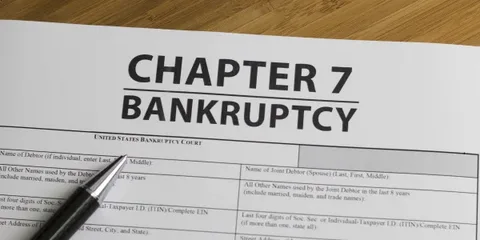Receiving notice of a lawsuit can be overwhelming, especially when you are already struggling with debt. For residents of Lakeland, this situation often leads to a pressing question: “Can I still file for Chapter 7 bankruptcy after being sued?” The short answer is yes, you can. However, there are certain factors to consider when deciding whether and when to file. With the help of a knowledgeable bankruptcy attorney in Lakeland, you can assess your legal options and determine the most effective path forward.
Chapter 7 bankruptcy provides a legal mechanism to discharge qualifying debts, including judgments from certain lawsuits. Whether the lawsuit is in its early stages or has already resulted in a judgment, bankruptcy may offer relief—if the filing is handled correctly and in a timely manner.
Understanding the Lawsuit and Its Implications
When a creditor files a lawsuit, the goal is typically to obtain a judgment that allows them to collect the debt through legal means. This may include wage garnishment, bank account levies, or placing liens on property. If you do not respond to the lawsuit or fail to appear in court, the creditor can obtain a default judgment against you.
Filing Chapter 7 bankruptcy at any point during the lawsuit process—before or after judgment—generally puts an automatic stay in place. This court-ordered stay halts most collection actions, including ongoing litigation, wage garnishment, and debt recovery efforts. In many cases, the automatic stay offers immediate protection and relief from financial pressure.
Timing Is an Important Consideration
The timing of your bankruptcy filing in relation to the lawsuit can influence how your case proceeds. If you file for Chapter 7 before a judgment is entered, the lawsuit is usually suspended and ultimately dismissed, as long as the debt is dischargeable.
If the lawsuit has already resulted in a judgment, you may still be able to discharge the debt through bankruptcy. However, there are exceptions. For example, debts resulting from fraud, intentional wrongdoing, or personal injury caused by impaired driving are typically not dischargeable. A creditor may also challenge the discharge of certain debts by filing an objection in bankruptcy court.
Filing promptly after being served with a lawsuit provides more flexibility and may simplify the overall process. Consulting a bankruptcy attorney early can help you avoid unfavorable outcomes and protect your assets.
What Happens to the Judgment in Bankruptcy?
If the lawsuit has already produced a judgment against you, bankruptcy can still eliminate your liability for that debt. This means that even if the judgment remains on public record, the creditor cannot attempt to collect the money from you after discharge.
However, if a judgment has created a lien on your property, such as your home or vehicle, you may need to take additional legal steps to remove that lien. In Florida, debtors may be able to file a motion to avoid the lien if it impairs their homestead exemption or other protected assets. This process requires careful documentation and timely action, which a skilled attorney can assist with.
Other Considerations When Filing Chapter 7 After a Lawsuit
Before filing, it is essential to assess your complete financial situation. Chapter 7 is designed for individuals who meet certain income thresholds and have limited assets. A means test will determine your eligibility, and full disclosure of all financial obligations and legal actions is required.
It is also worth noting that bankruptcy does not discharge all types of legal judgments. For instance, obligations related to child support, spousal support, certain taxes, and student loans typically remain intact. A thoughtful review of your debts, both those involved in the lawsuit and others, will help ensure that Chapter 7 is the right choice for your circumstances.
For individuals in Lakeland who creditors are being sued by creditors, filing Chapter 7 bankruptcy remains a viable option in many cases. Whether a lawsuit is pending or a judgment has already been issued, bankruptcy may provide a path toward financial relief and a fresh start. Prompt action and legal guidance can help you understand your rights and take the proper steps.
To explore your options with a trusted bankruptcy attorney, visit Weller Legal Group. With decades of experience serving clients in Lakeland and throughout Florida, Jay Weller provides the support and expertise needed to navigate complex financial challenges.
